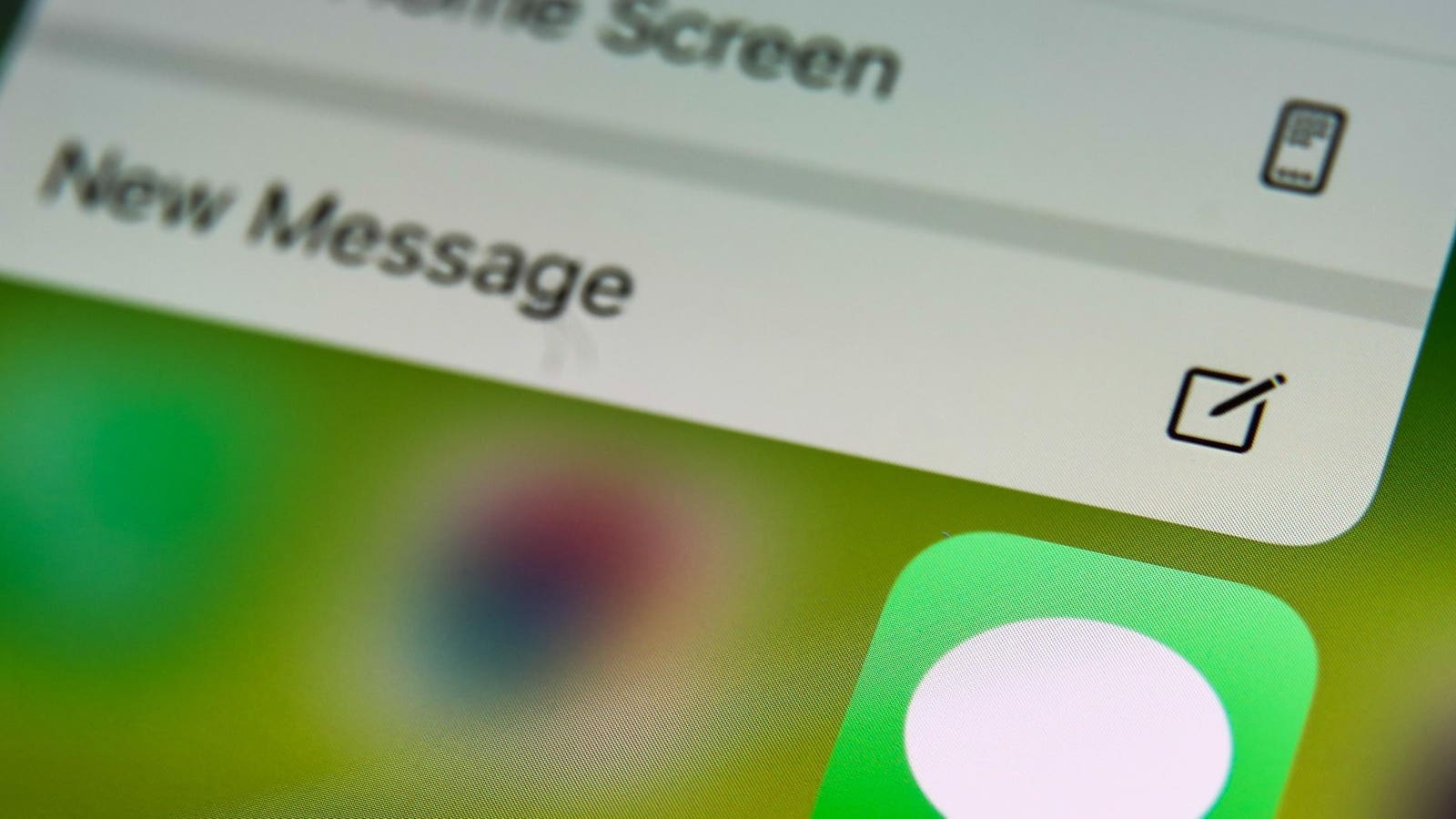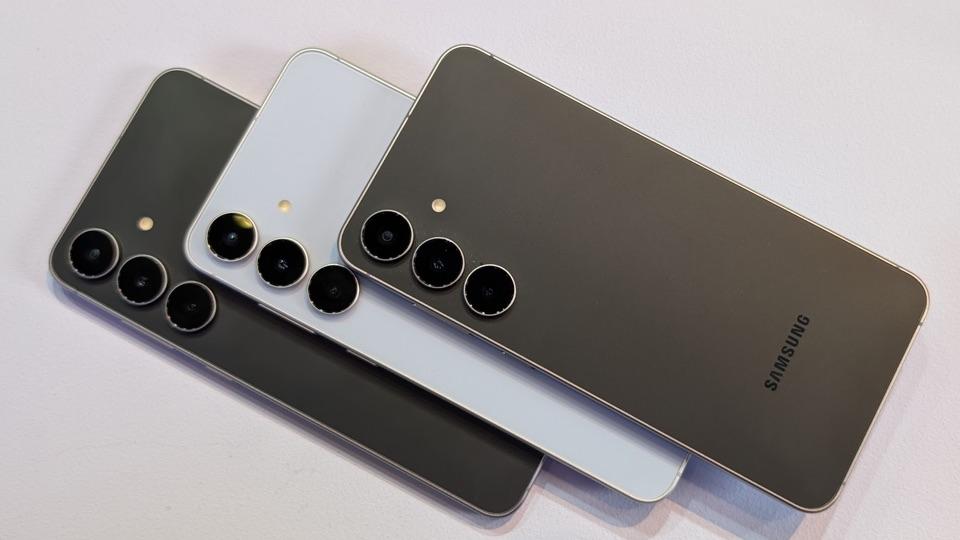All change for iMessage
Republished on May 20 with comments on new messaging deal in U.S. and news of WhatsApp’s largest ever marketing campaign as messaging battle heats up.
It was all going so well — to an extent. Messaging between iPhones and Androids is about to get a game-changing update that could be the biggest threat to WhatsApp in a decade. It could end the huge security gap that saw the FBI warn users to stop texting. It could finally kill off SMS. But it has all started to go wrong.
That FBI warning followed Chinese hackers marauding through U.S. networks, highlighting (yet again) the painful lack of full encryption between iPhone And Android messaging when using iMessage and Google Messages. That stock messaging has now upgraded to RCS, and when mobile standards setter GSMA adds end-to-end encryption to its standard RCS protocol, that same messaging will finally be fully secured.
Google has lauded the success of RCS this week. “Over the last few years, we’ve been focused on improving how people connect, no matter what phone they have. That’s why we helped make RCS the messaging standard for Android and iOS. Now, in the U.S. alone, there are more than a billion RCS messages sent every day (based on an average of the last 28 days). This means more people have been able to send high-quality photos and videos, and add someone to the group chat, without it breaking.”
Encrypting the protocol is the upgrade that matters most, and that levels the playing field with WhatsApp and other over-the-tops that fully secure user content. But that’s not here as yet, and there is no news yet on when the upgrade will land. There are hopes this will be timed for Apple’s fall launch of iOS 19, but we have to wait and see.
That upgrade will be an Apple/Google competitor to WhatsApp. When communicating within iMessage or Google Messages, content is fully secured. It’s only cross-platform that security falls away. Fully encrypting RCS fixes that. And with perfect timing, the controversial decision to force Meta AI on WhatsApp users should have been a gift to Apple, Google and the telco networks operating RCS. Should have been.
But with equally perfect timing, the two major problems with RCS are now making headlines, reminding billions of users why using over-the-top platforms like WhatsApp is so compelling. One is security related, the other is just Google being Google.
On the security front, as I warned this week, RCS is now being used by China’s organized criminal gangs, who favor this over SMS given its rich format and better engagement. Resecurity warns new attacks on a “massive scale” can send 2 million texts daily, “enough to target every person in the US at least twice every year.”
“Cybercriminals prefer modern messaging platforms because they provide a richer set of tools for creating convincing attacks, better engagement features, and more sophisticated methods of deception.” Exactly the same benefits attracting users.
And those same benefits also bring the second threat to RCS — marketing. Per Phone Arena, “Google RCS Business Messaging gets flashy, but is this what we wanted? As rich media ads arrive through Google Messages, concerns about spam and consent grow.”
That same ecosystem is being exploited by cybercriminals. Per Resecurity, “besides Google RCS and Apple iMessage being used as the primary smishing delivery methods, the group also uses SMS gateways, specialized equipment for network operators. Telemarketing companies also use similar devices to send messages to mobile subscribers for legitimate purposes, which appears to be misused by Chinese cybercriminals in combination with other methods. To do this, actors are looking for routes to reach subscribers of specific mobile carriers abroad.”
But spam is the issue that will hit most users hardest. It’s an ongoing battle, with some controls and an unsubscribe button being added by Google to try to prevent a repeat of the situation in India, which saw RCS disabled to stop out of control spam. But still, Android Police warns “RCS ad spam worsens across all platforms and could be here to stay… Unwanted RCS advertisements remain rampant to this day. Now that iOS users have been invited to the spamfest, nobody has to feel left out.”
The new RCS spam warnings have been prompted by the announcement of a partnership between Clerk Chat, Google and the U.S. networks. “The first simultaneous multi-carrier RCS deployment in North America [to] transform traditional transactional, SMS announcements into an interactive, AI-powered conversation [with] consumers.” But what starts in the U.S. will shape what’s done everywhere else.
It’s all about engagement again. “Internal testing shows that RCS messaging delivers significantly higher engagement rates than traditional SMS… The solution leverages Apple’s recent adoption of the RCS protocol and Google’s verified business messaging platform, creating a seamless experience for both Android and iOS users.”
“Even as Google delivers various add-on features to reduce spam,” Android Police says, “there’s one thing it’s not telling you. The mobile industry explicitly pushes RCS as a way to regain control over the business-to-consumer engagement pipeline and greatly streamline automated marketing messaging. It’s not even really a secret, so don’t expect it to go away anytime soon. And expect AI to be closely intertwined.”
Google has now brought that unsubscribe button to Android for RCS business messages — one business at a time, of course, and anti-fraud defenses to flag RCS scams within its Messages app. But in a world where 3 billion users turn to WhatsApp each month, there’s an easier option for users wanting a less marketing heavy experience. For Apple users, that RCS upgrade is turning out to be much less fun than expected.
Change your app or change your settings
Clerk Chat co-founder Alexander Haque agrees that something needs to change. On the subject of cybercrime, “the beauty about Verified RCS messaging from brands is exactly to combat all this fraudulent noise; it’s the industry’s attempt to help restore consumer trust. This is the future we are betting on and one we stand behind.”
As for the overreach in buisness spam on RCS, “if you look at all the MarTech SMS companies today (we joke internally there are billions of texting apps), we find it so frustrating all the communication are driven around coupons and non-personalized messaging.” The challenge he is breaking through the tidal wave.
Haque says “we are taking a completely separate stance where we see the future of messaging as ‘Conversational’ – not frustrating transactional ads. Just like Character.AI demonstrated consumers are willing to engage with AI chatbots all day long, we think a ‘great conversation’ with a company will drive strong customer engagement and affinity. In fact, we’re already seeing our agents drive better outcomes for businesses.”
So, what can you do. You can change iMessage to an over-the-top platform to escape RCS marketing. If you don’t want to move away from iMessage, you can change your settings to disable RCS or RCS Business Messages. Do this in Settings—Apps—Messages—RCS Messaging. This isn’t a catch all. As Android Authority warns iPhone users: “You didn’t ask for ads in your RCS chat app, but you’re going to get them anyway.”
If you do want to switch, it’s more likely than not that WhatsApp will be your choice, with its benefits over SMS and now RCS. There is much less spam, less scams on WhatsApp. It’s easier to block messages and you’re harder to find. But when marketeers get through, the advantages are quickly apparent. And that’s a warning sign for users.
A new report aimed at marketing professionals highlights the risks for users. The “10 WhatsApp stats that might surprise marketers” comes as “many businesses are waking up to the benefits, whilst others are reluctant to make the switch.”
Those stats include a stark 87% read rate, which dwarfs other mediums, an even more surprising 57% click rate, as WhatsApp messages “spur half of users to click.” WhatsApp’s secure enclave means “70% of consumers feel more connected” and “83% of users check messages daily.”
The report says “marketers tend to sideline WhatsApp as a tricky-to-track ‘dark social’ channel,” but “the data speaks for itself. WhatsApp is no longer just a platform for chatting with friends, it’s becoming a powerful marketing tool that businesses can’t afford to ignore. With unmatched open rates, lightning-fast response times, and a personal feel that fosters real connection, WhatsApp offers marketers a unique way to cut through the noise.” And it’s hard to argue with those raw stats.
While Meta is pushing WhatsApp’s benefits as a marketing platform hard, it’s easier to control from a user perspective — at least for now. “We want people to be in control of their experience chatting with businesses on WhatsApp and are focused on building tools that help you get relevant and useful information from businesses you care about, without feeling overwhelmed or missing out on important messages.” These measures include opting in to messages from a business and blocking chats with a click.
In contrast to the open RCS platform, WhatsApp’s business broadcasts are paid, place limits on the numbers of messages that can be sent and are quality checked. “We enforce on businesses that violate our policies,” Meta says, “and repeated violations can result in messaging restrictions that gradually increase in duration and severity.”
The timing of RCS’s full encryption update remains unclear. In March, the organization confirmed “the availability of new GSMA specifications for RCS [will] include end-to-end encryption (E2EE) based on the Messaging Layer Security (MLS) protocol.” It’s no simple task. “RCS will be the first large-scale messaging service to support interoperable E2EE between client implementations from different providers. Together with other unique security features such as SIM-based authentication, E2EE will provide RCS users with the highest level of privacy and security for stronger protection from scams, fraud and other security and privacy threats.”
With the twin furors over Meta AI invading WhatsApp and RCS spam, it’s hard to know how 2025 will play out. What is certain is that the secure messaging space will end 2025 very differently than it started. For Apple users, the question is whether this pushes users back to raw iMessage as a safe harbor and whether Apple leaves well alone.
Meanwhile, WhatsApp has just launched its largest ever marketing campaign to push its privacy message. “‘Not Even WhatsApp,’ created by agency West BBDO, makes a bold statement to the Meta-owned messaging platform’s over 3 billion monthly users worldwide: no one, not even WhatsApp itself, can see or hear your personal messages.”
The platform “promotes its privacy features, including the newly launched Advanced Chat Privacy, a setting available in both chat and groups that prevents other users from taking content outside the platform by exporting chats or auto-downloading media to phones.” That same privacy upgrade also disables Meta AI, seen by many as a serious privacy threat to WhatsApp users given the lack of any form of general opt-in.








